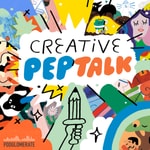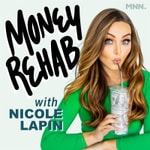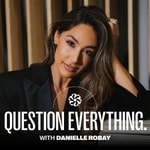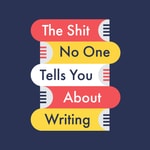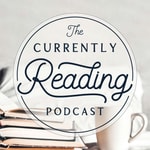#AmWriting – Details, episodes & analysis
Podcast details
Technical and general information from the podcast's RSS feed.
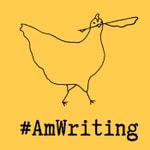
#AmWriting
KJ
Frequency: 1 episode/7d. Total Eps: 484

amwriting.substack.com
Recent rankings
Latest chart positions across Apple Podcasts and Spotify rankings.
Apple Podcasts
🇨🇦 Canada - books
07/07/2025#51🇨🇦 Canada - books
06/07/2025#78🇺🇸 USA - books
06/07/2025#91🇨🇦 Canada - books
05/07/2025#50🇺🇸 USA - books
05/07/2025#72🇬🇧 Great Britain - books
04/07/2025#90🇺🇸 USA - books
04/07/2025#95🇨🇦 Canada - books
27/04/2025#86🇨🇦 Canada - books
24/04/2025#53🇩🇪 Germany - books
07/03/2025#95
Spotify
No recent rankings available
Shared links between episodes and podcasts
Links found in episode descriptions and other podcasts that share them.
See all- https://www.blogger.com/
830 shares
- https://gretchenrubin.com/
486 shares
- https://twitter.com/v_solesmith
83 shares
- https://twitter.com/jesslahey
30 shares
- https://twitter.com/raquelita
21 shares
RSS feed quality and score
Technical evaluation of the podcast's RSS feed quality and structure.
See allScore global : 49%
Publication history
Monthly episode publishing history over the past years.
#Resilience Over the Long Haul
vendredi 8 novembre 2024 • Duration 55:48
Today we’re talking about the need for a writer to be resilient over the long haul of a career and my guest is A.S. King
A.S. King has been called “One of the best Y.A. writers working today” by The New York Times Book Review and is one of YA fiction's most decorated. She is the only two-time winner of the American Library Association's Michael L. Printz Award (2020 for Dig and 2024 for The Collectors) and has won the LA Times Book Prize for Ask the Passengers. In 2022, King received the ALA's Margaret A. Edwards Award for her lifetime achievement to YA literature and 2023, she accepted the ALAN Award for "artistry, courage and outstanding contributions to YA literature."
Amy – which is her real name – has taught for years in MFA programs and is working on her PhD in creative literature
I wanted to talk to Amy because I heard from a mutual friend – Caroline Leavitt – that Amy’s publisher had made a change to her promotional team just weeks before the launch of her newest book, Pick the Lock, which one reviewer described as "a punk opera, a primal scream, and a portrait of a family buried in lies."
Many of our listeners are trying to get their foot in the door with their first book, or to get a career off the ground with their second or third and here is someone who has written 15 books, who is at the top of her game, and who still has things like this happen – which is to say things that go wrong, things that don’t go her way.
I thought a conversation about what it feels like at this stage in a career would be illuminating – and was I sure right. Let’s get to it.Find A.S. King at AS-King.com
Heads up!
Join me—KJ—for Novelmber, which is very hard to pronounce but is my word for reclaiming my writing space in November. Think NaNoWriMo, our version—daily challenges and stretch goals, formatted by you, for you.
There will be write-alongs, posts, a massive Google spreadsheet for sharing goals and updating progress, thoughts on how hard this is, and more than you want to know about why I need this regroup so badly. All writers, every genre, welcome.
This is sign-up only—I don’t plan to spam the whole #AmWriting community with my wails of writerly distress daily for an entire month—but it’s also for everyone who wants in. I hope you’ll join me—I don’t want to go this alone.
Don’t worry, signing up is simple! Here’s how:
Click here to go to your #AmWriting account, and when you see this screen, toggle “Novelmber” from “off” (grey) to “on” (green).
THAT’S IT!
Once you set that up, you’ll get all future Novelmber emails. Any audio or video will show up in those, along with write-along schedules.
You’ll also want to add yourself to the Google Sheet where we’ll all record our overall goal, day’s goals, daily progress and what we’re feeling. I’ve started it off.Join me, help me, let’s make Novelmber WORK!
This is a public episode. If you'd like to discuss this with other subscribers or get access to bonus episodes, visit amwriting.substack.com/subscribe
The Longest, Most Public MFA Ever
vendredi 1 novembre 2024 • Duration 47:57
I couldn’t resist the subtitle, kids, sorry. It’s not that shocking—but Tim’s journey was definitely only for the bold.
I’ve known Tim Grahl—or known of him—for more than a decade. I watched him help writers like Dan Pink launch their non-fiction books onto the best seller list, and devoured and followed his excellent advice about launching my own books (which you can find here at booklaunch.com). Then I watched—or rather, listened—as he pivoted into the world of fiction, enlisting editor Shaun Coyne to join him on a podcast and help him use Coyne’s Storygrid method to work on what eventually, after many revisions and a whole lot of failing in public, became Tim’s first novel, The Threshing. At the same time, he and Shaun were building Storygrid into what’s not just a business, but a huge community of writers and editors. He’s just published his second novel, The Shithead, a very different book from the first… I call it The Firm meets The Alchemist; Tim prefers Fleishman Is In Trouble meets Faust. Both work.
We talk Tim’s sideways journey into fiction, and then we talk craft—in particular, how to learn what you don’t know, the myth of the lone writer in a cabin and the importance of feedback and then we dig into a passionate discussion of theme.
You can check out The Shithead here.
Links from the pod
Shaun Coyne’s book, Storygrid
The Prince of Tides, Pat Conroy
The Shadow of the Wind by Carlos Ruiz Zafon
The Accidental Tourist, Breathing Lessons by Anne Tyler
(KJ also mentions Redhead by the Side of the Road)
The Husband’s Secret, What Alice Forgot by Liane Moriarty
Heads up! This is probably the only time you’ll see this.
Join me—KJ—for Novelmber, which is very hard to pronounce but is my word for reclaiming my writing space in November. Think NaNoWriMo, our version—daily challenges and stretch goals, formatted by you, for you.
There will be write-alongs, posts, a massive Google spreadsheet for sharing goals and updating progress, thoughts on how hard this is, and more than you want to know about why I need this regroup so badly. All writers, every genre, welcome.
This is sign-up only—I don’t plan to spam the whole #AmWriting community with my wails of writerly distress daily for an entire month—but it’s also for everyone who wants in. I hope you’ll join me—I don’t want to go this alone.
Don’t worry, signing up is simple! Here’s how:
Click here to go to your #AmWriting account, and when you see this screen, toggle “Novelmber” from “off” (grey) to “on” (green).
THAT’S IT!
Once you set that up, you’ll get all future Novelmber emails. Any audio or video will show up in those, along with write-along schedules.
You’ll also want to add yourself to the Google Sheet where we’ll all record our overall goal, day’s goals, daily progress and what we’re feeling. I’ve started it off.
Join me for the first write-alongs HERE. (That’s a link to my Zoom Room.) I’ll be sitting there:
Friday, November 1 10:30-12:30 (ALL TIMES EST)
Tuesday, November 5, 2:00-4:00
Friday, November 8, 9:00-11:00
More times coming. Join me, help me, let’s make Novelmber WORK!
This is a public episode. If you'd like to discuss this with other subscribers or get access to bonus episodes, visit amwriting.substack.com/subscribe
Raising Your Voice, Claiming Your Story
vendredi 30 août 2024 • Duration 34:15
Hey writers! I’m Jennie Nash — and this is the #amwriting podcast, the place where we talk about writing all the things: short things, long things, fiction, non-fiction, pitches and proposals.
Today, we’re going to dig into a part of the writing process that comes WAY before you write anything — which is giving yourself permission to write in the first place.
So many writers are shut down by teachers, people who love them, critique partners, well-meaning editors and book coaches, perhaps the entire culture– and the impact of that shutting down can last for decades, if not entire lifetimes.
In my Blueprint framework – a method of inquiry for starting a project -- the first question is why write this book? Why do you want to do this? It’s amazing to me the number of times that the deep level why has to do with reclaiming a voice that was shut down.
My colleague and friend Julie Artz was shut down when she was 25 and 20 years later she is finally grappling with what happened – and feeling a creative spaciousness that eluded her until now. She’s been on the show before, but I invited her back to talk about this important topic.
About Julie:
Julie Artz is an Author Accelerator-certified Founding Book Coach, a sought-after speaker and writing instructor, and a regular contributor to Jane Friedman, Writers Helping Writers, AuthorsPublish, IWWG, ProWritingAid and more. Her work as a Pitch Wars and Teen Pit mentor, a former SCBWI Regional Advisor (WWA), and her memberships in The EFA, the WFWA, AWP, and the Authors Guild keep her industry knowledge sharp. She’s built a thriving book coaching business based on her values, her editing chops, and her knowledge of story. Connect with her on Instagram @JulieArtz and download her freebie on giving yourself permission. https://pages.julieartz.com/giveyourselfpermission
It’s hard to believe the summer is almost over, and in the next few weeks, we will be wrapping up our special Blueprint Challenge that we did here at the #AmWriting podcast. As a part of that challenge, anyone who signed up for and completed it will be getting a list of exclusive offers from Author Accelerator book coaches to help them with their blueprints.
But if, as the summer closes, you're at a point where you feel like you could use some help from a book coach, we suggest you check out Author Accelerator’s book coach directory. They’ve certified more than 260 book coaches in fiction, nonfiction and memoir, and one of them may be the perfect person to help you get your book back on track.
Head to https://www.authoraccelerator.com/matchme to find the book coach that’s right for you.
This is a public episode. If you'd like to discuss this with other subscribers or get access to bonus episodes, visit amwriting.substack.com/subscribe
The 30-Day Revision: Episode 338 How KJ Revised a Novel in 30 Days/189 Hours and approximately 72 Chocolate-Covered Peeps
vendredi 11 novembre 2022 • Duration 51:21
Many of you have heard me (this is obviously KJ) whine about my revision in process. Well, I’m here to report that it’s done, and successfully. Below is a full description of the process, and in the episode you’ll hear me talking about it with Jennie Nash. I detail everything except the Peeps that fueled me, and I decided it was wrong to leave them out.
So, in addition to a lot of butt-in-chair time and a surprising number of hours spend really just staring the at screen, I should own that I also ate a lot of Halloween peeps and most of a bag of fun-sized $100,000 bars. And I would have eaten the whole bag but someone else beat me too it, and they owe me big.
Here it is in writing, THE LONG VERSION: How to do a substantial novel revision in 30 days
The Overview
I had a long, rambling, completed draft of a book with a solid plot and decent thematic/internal story. The magic system was unclear and the romance undeveloped, and I had too many side-characters and too many scenes that weren’t doing more than one job. Because it’s a seasonal book, I couldn’t take my time with a revision without getting pushed another full year out. So we were shooting for publication in less than a year—and we needed to leave some time, tbh, for me to get this wrong and have to fix it again. Thus: 30 days to a revision that involved nearly a full rewrite, even though the characters, story and in particular the plot excitement of the ending would stay the same.
What the hell did I sell?
At the time, I thought I sold a solid, almost-ready 102K draft. Looking back, I see I sold an idea (Grown-up Gilmore Girls meets Practical Magic with a stolen set of family Tarot cards with powers and a mission of their own) and a rambling, creaky proof-of-concept draft with a solid plot at its core and characters my editor liked and wanted to spend time with.
What this was: Same basic plot, both inside and out. I’ve done revisions that required altering a major plot point or removing characters. This did not.
Same characters.
Same themes, but narrowed and clarified.
A few thoughts on that—the draft I sold was, in my mind, intentionally “edit-able”. There comes a point in a draft when editing it is hard. When what you have is both very polished and tightly wound, the editor may be able to see what’s wrong, but pulling it out will be more painful for the writer, because you’ve locked down all the story elements to intertwine and all the language, etc. This wasn’t that—when I yanked out scenes, they were at least flabby or tangential. I didn’t have to feel too bad about it. And the story wasn’t quite locked in as well. So none of this was unexpected. I know this editor likes to edit and is really good at it.
That said, it WAS a … third or fourth draft or fifth, I can’t remember. I’d done a lot of work on it. When I let go of it I thought it was pretty darn good. When I got it back I was like, OMG I can’t BELIEVE I gave this to anyone, it’s so long and there are scenes that don’t go anywhere and it takes forever to get to the point. And in many ways I had done too much writing work on a story that wasn’t ready to be written (although some of that is necessary for me to find the story).
So a) I thought this was a lot better than it was and b) even after you sell a book, sometimes there is substantial work still to be done and that is fine, it doesn’t mean you’re terrible and the story is crap and the editor is staring at it and thinking, I cannot believe I bought this horrible piece of junk. (Or so I kept telling myself, over and over and over.) And c) apparently what you go out with can be (and will be) far, far from perfect. Even if you think it is.
All that said, some editors don’t edit. I was talking with another writer at a party recently, a NYT best-seller who broke out on her seventh novel, and has written 2 more since, told me that she doesn’t get edited any more. That may be because of her skill and experience (and if so, I am so not there and can go back to feeling terrible about this draft) but I’ve heard the same from newer novelists. And debut novelists, although that situation is a little different, as our debuts are usually the product of a longer period of work and often working with paid editors or readers.
I knew this editor and knew what to expect. If I was submitting to an unknown editor, I would submit something that—to me—was ready to go. Which, I should say, does not mean that it won’t get the same big editorial treatment, so it’s important to be ready for that and accept it. It also doesn’t mean it wouldn’t need it.
The goal for this go-round.
Major notes from my editor: it’s too long, and it drags. The magic system is unclear. The motivations of several major secondary characters who move the plot are unclear. The love story is an afterthought. There’s too much of one secondary character and not enough of 2 others. Too much internal monologue, too many conversations in parts that should be action. The deep backstory (i.e where the magic comes from) should be super-clear to me but mostly unseen by the reader.
Minor notes: Some scenes don’t work hard enough. Magic should be more magical. The stakes are high, but make it more clear what they are. More descriptions of the cute town and shop.
My editor suggested a fresh structure of the first half of the book that moved it more quickly, which was very helpful. There are two inciting incidents, and we moved things so one of them happens very very quickly (the return of the magic) and the other later, after the first had more time to develop (the magic goes badly).
I had two calls with my editor, the first before she wrote her (10 page!) editorial letter and the second after I’d read it. I didn’t do any revision in between—I re-wrote the flap copy and worked on their author questionnaire (and if you’ve never done one of those, they’re quite long). We also wrote the tagline. Both of those—the flap copy and the tagline—were really helpful in reminding me what it was I was doing here, especially the tagline, which ended up on a post-it on my desktop: Flair is done with magic. But magic isn’t done with her.
I needed to cut at least 10K words, make the magic, the plot and the motivations of the characters around it clear, bring the romance forward and take out a lot of action (and a few tertiary characters and events) that were obscuring the main story.
An aside: I think we’re either writers who stuff too much into the story (and write long) or writers who get right to the point (and write short). Whichever you are, outlining a favorite book in your genre or one that really did whatever your goal is (page-turner, thought-provoking, slow burn) successfully for you can really help. How many additional characters and plotlines were there? Which did you remember at the end of the book? How many did you really love, or really contributed to the book’s success with you? Did they move the plot and the inner story or just one or the other?
I did this during my revision and found it really helpful. Again. For me, outlining—or at least thinking about specific elements—of books I hope to be like on some level is always a good move.
The numbers
Original: 102K/330 pp 36 chapters
Revision: 83K/298 pp 30 chapters
30 days/189.5 hours of butt-in-chair. This does not count anxiety dreams, walks to think through problems or time spent staring at other people and nodding while thinking about book.
Longest day: 11 hours (I had 2 11 hour days and 5 10 hour days)
What did that look like? 7-8 hours before dinner, with a substantial dinner stop that often included a walk or short bike ride, then back at it until 11 pm or so. I’m a natural night owl, so that’s not that hard for me.
Shortest: 1.5 (I traveled 3x during the 30 days, so I knew in advance that there would be several days when I did very little.)
The shortest “real” day—as in, I didn’t drive for 8 hours or spend a full day in family activity—was 6 hours. I’d consider that a normal day, and if I hadn’t been in a rush I would say that’s about ideal.
Average: 6.3
The mechanics
I made one big decision first thing: I decided not to work in the draft, even though it had (relatively few) line notes from my editor. Instead, I decided to return to Scrivener.
The big advantage to Scrivener is the ability to move from chapter to chapter easily—as in, when you realize you’re quoting something said in an earlier chapter, it’s in the outline off to the side and easy to pop up and see, or if you realize you’ve forgotten something, ditto. That’s really tough in 300 pp in Word, or even if you pull out each chapter and work on them separately in Word. And the risk of choosing an old version is high for me. This worked really well, and I would do it again on any revision where I didn’t need to be following line notes in Word. The ease of moving around a doc in Scrivener cannot be beat.
I also decided not to pull out each chapter, put it in Scrivener and plan to revise it. Here’s why—there was a LOT in this draft that wasn’t going to make it into the final. At a minimum I needed to cut 10K/15pp. But truly, so much needed re-writing as much as revising—or maybe I should say, there was a lot of new material that needed to fit in. It would be easier to take what I needed from the old draft and add it to new stuff than to cut things, especially things I liked. Most of the scenes I needed had been written, but interspersed with scenes I did not. It was MUCH easier not to even look at those scenes again unless, say, I began writing a conversation and thought –they’ve done this before. Then I’d go dig it out.
Instead, I tackled it bit by bit, taking out the part I planned to work on and creating a Scrivener folder for it. I divided my book into about 6 sections—broadly, the beginning, the beginning of the middle, the midpoint scenes, the beginning of the end, the big action at the end and then the end. I planned for it all to end up in Scrivener and to compile it out from there.
I often did the editing in Word by pulling out, say, three chapters that needed to become 2, dumping them into a fresh word doc (that way I got my editor’s comments, too), giving it a name and working in there by also opening a dumping ground word doc next to (on desktop) or behind (laptop) it. I’d pull out a huge chunk, put it in the dumping ground and then go snatch lines or paragraphs as needed. This also gave me confidence, because the original always remained whole. I could always go back and get something if I needed it.
Those Word docs looked like this:
I drafted new material in Scrivener. Once or twice, I duplicated a chapter so that I could try something and see if it worked but easily go back to a previous version, which Scrivener also makes easy. I did some smaller chapter revisions in Scrivener too, although often I did them in Word and then pasted the result into Scrivener.
I created multiple outlines (about which more in the next section), and often—especially as I got closer to the end—included target word counts, and I really paid attention to those. I have a tendency to repeat things, especially in dialogue, and keeping an awareness of where I was in the scene/chapter in terms of middle and approaching end helped me move things faster.
Why are my fingers not moving?
Of that 189.5 hours, I spent approximately 103 staring at the screen, outlining, prewriting, staring, outlining again, and generally struggling.
I loosely outlined my revision with my editor before I started. A few days in I crashed headlong into the first wall and pulled back to really outline. We’d focused mostly on plot, which was just great—but what I ran into was the question of why anyone did anything and then, what the reader knew and believed when and what they were wondering about.
It seems so straightforward now, but on day four I wrote in my calendar (I keep a calendar record of what I actually did, as opposed to what I meant to do, often quite different): “struggling.” And struggle I did, for 9 days. I tried summarizing, I tried outlining, I tried fitting the story into various structures. I did a lot of prewriting of dialogue, which is dialogue with no punctuation and no tags or stage direction, which was one of the most useful things I did—just basically let the characters yell what they really thought at one another and then used it in various places. Here’s an example:
Mocking her. None of those cards were for her, they never were.
What came next, Nana taught her, was what you faced.
The card that, for Flair, held the flash of premonition, the knowledge of what was coming.
She pushed it away. She didn’t want it. She didn’t want the cards, not even these cookies, to exert their control. She didn’t want to know what would happen. She knew what she wasn’t going to let happen.
He can’t take Lucie from me.
The Hermit. Herself, alone.
A figure on the ground, lucie’s frightened eyes, the five of cups. She hadn’t even made a five of cups. Death—we cannot outwit death and we cannot outwit change—that was not what lay ahead.
They were just cookies.
I made them.
They’re mine.
None of that. She reached out, seized on the Devil, that card of control, to push it away with all her might but found her grip tightening on it.
Because of David. David needs to do what I want and leave my daughter alone.
Whew. Harsh.
Well, he’s an a*****e. She can’t go live with him.
Agreed. But you know what I think.
I know, enabling, blah blah. Well that’s done. I’m done with him. As long as he’s done with Lucie.
Oh yeah that sounds like you’ve totally let him go in a healthy way.
Flair picked up death and bit its head off.
Oh, maybe we leave the nice cookies alone now, morticia. I think you’ve had enough.
And then things went on well enough for a little over a week. And then I hit another wall and spent 2 days circling around, again, why one secondary character (the antagonist) would do what she does and how she would interact with my protagonist, in particular in one scene—what would she be offering and why would it work? That seemed to go on forever. Part of the problem was that I had two different elements of her motivation that I quite liked but I couldn’t keep them both, and I kept leaning in one direction, then the other, depending on what I was working on… honestly I can barely remember the details now, but that’s when I created the document labeled “pick a f*****g side”.
Sometimes you just need to make a decision and write it that way. Sure, save your place so you can go back and all that. But sometimes you just have to CHOOSE.
At about the same time I sent my agent what I had, and she didn’t like the first chapter and that… let’s just say I took that badly. I mean, she had like 35K words and she liked them all except the opening 3K. IT WAS FINE. And revising them later was really good. But I might have had a slightly unprofessional meltdown.
A few quotes from that time: 10/8, 12 PM: Day of Panic. Why does anyone do anything? Why?
10/9, 1 AM: Ugly ugly ugly
10/9, 10 AM: Still staring at Loretta scene….
10/9, 7 PM: Finally back on track!
In which I actually revise actual words on actual pages
So after about 30 hours of returning to outlining/prewriting/cursing mode, I found my way back in, moved a scene to earlier, revised some transitions and then… finally… chugged along to the end. Where I’d known all along that the action would remain the same, but the dialogue/internal dialogue would change a lot. (In part because, right at the most dramatic moment when life and death hang in the balance, I … had two people go have a heart-to-heart about their relationship. Twice.)
But I knew it wouldn’t be hard to revise, and it wasn’t. It was such a relief to be there, too! And then I changed one part of the end dramatically, which oddly didn’t involve changing that much text, and then, instead of dropping straight out of the story and heading to a “one month later” style epilogue, I actually WROTE the end of the story, which I know will be way more satisfying for readers. The other was largely a choice made from exhaustion.
Once I’d solved all the problems (that are going to be solved in this draft, anyway), it took 4 days to actually revise the rest of the book and get to the end, a glorious moment.
Which was immediately followed by rewriting the first two chapters, and then it was on to my checklist.
The yellow and the green
Jennie Nash suggests a stoplight checklist for revisions—Red/Yellow/Green. I had such a list, at the beginning of this process. But I quickly realized that so much was red here that, for the most part, that was all I could do. I fixed some green things (changed the name of a character, physical descriptions, that kind of thing) as I went and had an awareness of some yellow (build up this relationship, tighten the dialogue) but I was very much concentrating on red. So I kept a running list of things I’d need to go back and revise for at the end. Here’s what that looked like:
Play up can’t use magic without cards even more esp cyn
Craft enclave. Kansas League of Craftswomen/coven, build up trail’s importance again
Bakery has bright turquoise boxes with the logo stamped on them by her
Josie is still an EMT
Cyn needs to know who Alice is
Maybe Renee would call Flair Harwicke? Maybe she coached some ridiculous soccer team they were on once?
Loretta lick lip
Add Jude pop rocks
Back of the cards: On each was an elaborate medallion, a fleur de lis with an eye inside a triangle made of a floral vine,
Loretta and Jude: The tough, genuinely ruthless spirit had also doted on him and raised him, supported his dreams, pushed him to be more, driven him relentlessly, had—along with Renee—turned him into who he was today, good and bad/or wtf IS the deal between him and Loretta and Renee? Because Renee didn’t tell him anything, bc she never gave him any credit.
Josie’s sig other still in national guard
Someone needs to extinguish flames as well as start them. Maybe make point that it’s easiet to put out your own fire?
BLACK MOON is big deal all over
Some of those I ended up disregarding. Some were literally one line additions (green), others I needed to look at in nearly every chapter—which could be green (hair color, bakery boxes) or yellow (the relationship between two characters). I made a tidier checklist and then went back through most of the chapters in the book, line editing and addressing those issues.
Anything I’d really worked on and didn’t want to touch again, I mostly left for the next round. Which I knew would come.
How did it turn out?
Well. Fabulously. Here’s this, from my editor:
Wow! Amazing! I don’t think I’ve ever had a book improve so much from the first draft to the second. You have done incredible work. Brava! Standing ovation! You took all the different elements that had so much potential and you pulled them tightly together into a story that is constantly moving forward, has a solid internal logic, makes use of the fun magic that is dying to be used, but without making it kitschy, and that has a wonderful happy ending. I’m truly amazed by how far you have taken the book in just one draft. I’m also impressed by how much self-editing I can tell that you did. There are so many fewer instances of circular thinking, sentences where it’s difficult to parse the meaning, and using forty words when twenty would do. It’s hard to self-edit and you have done it and I’m very grateful.
Do note that she managed to list all the things I usually do poorly (most particularly, “using 40 words where 20 would do”) and that she’s this excited because the last time I did a revision for her, I managed to actually make the book worse.
So.
Maybe I learned, maybe I didn’t. But this one goes in the win column!
Listeners, the team at Author Accelerator knows that all kinds of people can make good book coaches. It’s not necessarily people who have had massive success as writers themselves. It’s not necessarily people who have secured agents, book deals, degrees, or awards.
It’s people who really could spend all day talking about books, who get excited by the idea of lifting up other writers, and who are ready to back up their passion for writing with skills, training, and hard work.
If that might be you, join the Author Accelerator team for two days of exploration on November 30 and December 1, 2022, to find out if 2023 will be the year you launch a book coaching business or level up the one you already have. Head to bookcoaches.com/dreamjob to learn more.
This is a public episode. If you'd like to discuss this with other subscribers or get access to bonus episodes, visit amwriting.substack.com/subscribe
Publishing's Secret Side-Door: Episode 337 Writing Object Lessons and Books-for-series with Maria Teresa Hart
vendredi 4 novembre 2022 • Duration 37:58
Sometimes your first book is a gateway. For me—KJ—it was Reading with Babies, Toddlers and Twos, a book I wrote in 2006 with Susan Straub. Susan was the expert and I was a rising writer with a lesser expertise riding on her coattails. We pitched the book before I had many bylines at all—but adding the words “is the author of the forthcoming book…” to my pitches opened a lot of doors. The book itself was shorter and much differently formatted than standard non-fiction.
Many writers get started this way, with gift books, guides and other non-fiction books that follow existing formats or fit into existing series. (The fiction version would be work-for-hire chapter books or books within a fandom—and we’d love to talk about that if you have guest ideas.)
Maria Teresa Hart is a writer and editor who works most often in food and travel, with a series of impressive bylines that range from the New York Times and The Atlantic to VICE and Business Insider, but she came on the pod to talk about the experience of writing a book for a publishing house within an existing series. Her book, Doll, is part of Bloomsbury’s Object Lessons series. We talk about how that happened, what it was like and how an experience like this can become an doorway into larger opportunities in publishing.
LINKS
Maria Teresa Hart’s book, DOLL, is a pop-culture feminist critique of doll history and culture, from Raggedy Ann to Barbie to android sex dolls. Find it HERE.
Readers of Jane Friedman’s The Hot Sheet (if you’re not a subscriber, I recommend it, find it HERE) can read an interesting piece about work-for-hire in fiction fandoms in the 9/28/22 issue.
High Heel, Summer Brennan
Object lessons essay series in The Atlantic
Maria Teresa’s essay on Bidets
AmReading
Maria Teresa: The Witches of Willow Cove, Josh Roberts
How to Be Eaten, Maria Adelmann
KJ: The Final Girl Support Group, Grady Hendrix
Small Town, Big Magic by Hazel Beck
https://www.mariateresahart.com, Twitter: /maritehart, IG: @mariathart
Don’t forget that Author Accelerator is your one-stop for getting a coach on board to help you with your work, no matter where you are in the drafting game. Need a pro? Click here. And if you’ve considered becoming a book coach, here’s your link: Click here.
Also…. you know we here at #AmWriting tend to think working with a book coach or developmental editor is the gold standard for getting help with your project. But that’s not always in the cards—and even if it is, doing as much as you can before bringing in help is often a smart approach. (Although throwing small amounts of $$ at things for years until you’ve spent as much as you would have if you’d just gone all in is not…. so if that resonates with you go find a book coach already!)
The women of Pages & Platforms have created a course they call Story Path after years of going through this process on their own, and helping many clients fix their stories and finish their books. They saw how many people struggled with getting from a zero draft to a professional, working draft and made Story Path to help other writers get to “the end” faster.
Here’s what you’ll get in the course:
* You’ll have the tools you need to understand what type of story you’re telling and how to use it to satisfy readers
* You’ll finally be able to have an objective means to evaluate important aspects of your story
* You’ll map a plan to a complete professional draft that will have readers eager to turn the page
* You’ll have the confidence to keep on the path!
The developmental editors of Pages & Platforms provide 20 multimedia lessons, worksheets, exercises and quizzes to help you apply your knowledge to your work-in-progress, monthly live group coaching calls and 12 months of access to the course materials.
Here’s some feedback from a real student when she first started (she’s now querying her completed novel!):
“Already ‘Story Path’ has proven invaluable, and we’re barely halfway through the course! It’s given me (an aspiring novelist stalled on bringing my rough draft in for a landing) the tools, frameworks, and inspiration needed to confidently tackle both my ending and effective revision of a complete ‘professional draft.’ Hawley, Ramirez, and Campbell probably saved me from tons of angst and flailing around. I highly recommend this course!”
—Carolyn Cowen, novelist
This one is NOT FREE. But putting your $$ where your mouth is can be very very motivating. So if it sounds like it’s for you, get all the details and register HERE. We’re an affiliate, so we do make a little something if you decide to sign up —but please know that we only team up with people and businesses we trust!
This is a public episode. If you'd like to discuss this with other subscribers or get access to bonus episodes, visit amwriting.substack.com/subscribe
Why You Should Do NaNoWriMo (and how to make the most of it) 336
vendredi 28 octobre 2022 • Duration 41:06
I (KJ here) adore Nanowrimo. Tell me it’s impossible to write a whole novel in a month, especially a month with Thanksgiving in it, and I will set out to prove you wrong. My first novel, The Chicken Sisters started as a NaNo project, as did Playing the Witch Card (which is probably coming out in Fall 2023).
I… cannot NaNo this year (yes it’s a verb), because my next set of revisions, with an accompanying deadline, will be heading my way in the last week of October. But Jess can and will!
So I offered Jess my favorite advice on a successful NaNoWritMo—the KJ version, at least. Here’s how I approached last year’s NaNoWriMo, and it worked pretty well in the end:
My first novel clocks in at around 107K, my current WIP draft is at 99K. I favor long, convoluted sentences. I like to express things in sets of three—reasons the character is reacting as she is, emotions that are bombarding her, the ways her body responds— or even five: lists, smells, tastes, memories, expressions and as I have just demonstrated, I tend to use a lot of punctuation while I’m doing it.
I do this from the very beginning. If I’m writing a scene, I write a whole scene. The people move, they eat, they smell and taste and feel, they think about their backstory: the whole shebang. Historically, that’s meant two things. First, when November 30 rolls around, I’ll have 50,000 words—but I’ll only have a draft of about half of my story.
Second, I’ll have put in a lot of time writing those long sentences and and elaborate scenes. The terrible truth about my first drafts is that the writing tends to be pretty good. The dialogue flows, the action moves, there’s humor and pathos and feeling in the way the characters interact with one another.
It’s the story that usually sucks.
Getting to The End, not The Middle
I suspect that to some extent it will always be this way for me. I plot, then I write, then I discover that the plot doesn’t create room to bring the character to the place where she needs to be and I have to go back and do it all over again. But I also suspect I could do that initial finding my way to a character arc and plot that weave together in a way that satisfies the whole a lot more efficiently if I just wrote fewer words.
Make a Plan
To do that, I need a plan that forces me out of my usual loquacious style, and here it is: I divide my 30 days and 50,000 words into a beginning (6 days, 10K) , a middle (18 days, 30K) and an end (6 days and 10K again). World-building and character riffing are fine as long as I stick to the schedule.
Write Some, Pre-write Some or Just Say What Happens
Next, I pay attention to time and word count. If I’m lingering and I need to move along, I throw down some plans and some prewriting. Conversation about the Halloween event here. Town history TK. Some prescient line that recurs at end.
So that’s my weird NaNoWriMo plan: write fewer words, but get more of the whole picture on the page, with the goal of finding my way to “the end” instead of “the middle”. I know (and you know) that it won’t really be the end. There will be much, much work ahead—but I’ll have a draft. It will be a terrible draft, as it should be, but it will help me do the work I find hardest: not writing the scenes but finding the story. If I’m lucky I’ll be putting flesh on the bones; if I’m not, I’ll be rebuilding a scaffolding, not taking down a whole house.
And here, from the archives, is a NaNoWriMo Prep list I created a few years back.
Here’s a fun calendar Sarina found:
And a link to How to Do the Blueprint for a Book Challenge.
A few useful past episodes:
#NaWhateverWriMo, Episode 181
#SupporterMini 1: #Prewriting
#AmWriting
Jess: A Little Too Late, Sarina Bowen
Mad Honey, Jodi Picoult & Jennifer Finney Boylan
All Good People Here, Ashley Flowers *for loving the audio version
KJ:
We All Want Impossible Things, and What Can I Say?, Catherine Newman
Reluctant Immortals, Gwendolyn Kiste
Don’t forget that Author Accelerator is your one-stop for getting a coach on board to help you with your work, no matter where you are in the drafting game. Need a pro? Click here. And if you’ve considered becoming a book coach, here’s your link: Click here.
Also…. you know we here at #AmWriting tend to think working with a book coach or developmental editor is the gold standard for getting help with your project. But that’s not always in the cards—and even if it is, doing as much as you can on your own is always a smart approach.
The developmental editors of Pages & Platforms, Anne Hawley and Rachelle Ramirez, want to share their top tips for editing your own work in a FREE webinar Monday 10/31/22.
YOU WILL LEARN:
* Why marketing categories or “genres” don’t help you write a good working story, and what does.
* The three most common structural problems with novels and memoirs and how to start solving them.
* The importance of good working scenes, and how to fix scenes that don’t work.
Learn more HERE. We’re an affiliate, so we do make a little something if you decide to sign up for additional services. But this is FREE. And please know that we only team up with people and businesses we trust!
This is a public episode. If you'd like to discuss this with other subscribers or get access to bonus episodes, visit amwriting.substack.com/subscribe
How Butter Makes Everything (Including Books) Better: Writing Can't-Stop-Won't-Stop Fiction with Theodora Taylor (Flashback Friday)
vendredi 21 octobre 2022 • Duration 44:02
Listeners, we’re sharing this interview again because if you’re not already subscribed to Theodora’s substack, you should be. We sent you a taste of it this morning on top of this episode. We adored talking to TT, as we like to call her around here—but now that she’s revved up her Substack, every single time we’re texting back and forth about its brilliance. “Butter” has joined our official #AmWriting lexicon.
So, enjoy a favorite that you might have missed when it originally rolled out over the holidays last year.
Notes on the Pod: Who doesn’t want a craft book that’s fun to read and will help you plan your fiction (or memoir), write that fiction, revise that fiction and then sell that fiction? This week we talked to Theodora Taylor, author of more than 50 novels and one brilliant book about writing that made Sarina and I (KJ) go SQUEEEE and then text back and forth frantically for a couple of hours. It’s all about the “Universal Fantasies” that give our story-loving brains the things we need when we read—and how to spot those in your own writing to help you tell people what you’re all about, use them in drafting and revising and just generally make sure they’re everywhere in everything you write—literary, commercial, genre, short stories, novellas—everything.
We read Harry Potter for Hogwarts fun and the hero’s journey—but we also are in it for the universal fantasies of “crushed underdog proves self to loathsome family” and “ordinary person turns out to be special” and “loyal friends can be better than family” and so on—and the thing about those elements is that they appear everywhere. You could find a book in any genre that scratches those itches, and those feelings are a big part of what we’re reading for. As Theodora says, they’re what makes your book taste good.
They’re the butter.
7 Figure Fiction: How to Use Universal Fantasy to Sell Your Books to Anyone
Facebook group: 7 Figure Fiction
#AmReading
Theodora: Beastars Manga by Paru Itagaki
KJ: Labyrinth Lost by Zoraida Córdova
Sarina: The Talent Code by Daniel Coyle
People my people, if you’re thinking becoming a Book Coach might just be your next sparkly goal, DO NOT MISS this live event with Jennie Nash: Find Your Zone of Genius as a Book Coach, Jennie will host the top reasons people resist starting a new endeavor, and how to fight through those negative thoughts and share how to brainstorm your way to a zone of genius to your book coaching business.
This is a live working session that will not be recorded - because Jennie wants to workshop with YOU on your idea. It’s happening October 27th at 1PM Pacific, 4PM Eastern. FIND OUT MORE.
Also…. you know we here at #AmWriting tend to think working with a book coach or developmental editor is the gold standard for getting help with your project. But that’s not always in the cards. If you’re more in the market for a course that will help you move forward with your project, check Happily Ever After Week. Our friends at Pages and Platforms have distilled what they've learned working with hundreds of authors into a 3-part framework to give you:
* the mindset you need to persist in your efforts,
* the tools you need to write the best book possible,
and the willingness to put yourself out there and build the audience your book deserves. Learn more HERE. We’re an affiliate, so we do make a little something if you decide to sign up. But please know that we only team up with people and businesses we trust!
This is a public episode. If you'd like to discuss this with other subscribers or get access to bonus episodes, visit amwriting.substack.com/subscribe
How to Work with Small Presses and Literary Magazines—Episode 335 with Terena Bell
vendredi 14 octobre 2022 • Duration 52:04
Listeners, you KNOW we got granular with this one because there are just plain so many links!
Terena Elizabeth Bell has been writing all her life. Her first short story was published in a literary magazine when she was in college—almost thirty years ago, and she’s published many since and won multiple awards. She’s also written for more than 100 publications, including The Atlantic, The Guardian, Boston Globe, Smithsonian, Playboy, MysteryTribune, and Santa Monica Review. Platform-o-rama, right?
But she could NOT find a publisher for her debut novel or debut short story collection. As she puts it: It wasn't for want of trying. Her novel was turned down by 64 agents.
That novel, RECURSION, and Terena’s short story collection, Tell Me What You See were both purchased within two weeks once Terena decided to turn to the small presses associated with the lit mags she’d been a part of for so long.
We talk about the glories AND problems with small presses, how to be sure you’re talking to a small press and not the kind of hybrid publisher we often warn you about (there are legit hybrids, but be careful out there, many take advantage of writers who don’t understand what they offer), finding the right small presses and literary magazines and what it’s like to be a more literary and experimental writer. It’s a great episode with a lot of information we haven’t covered before.
BONUS: Read Previous guest Joni B. Cole’s When Is It Smart to Submit Your Work to a University Press? (You’d Be Surprised!)
Big Literary journals Duotrope, The Submission Grinder
Association of Writers and Writing Programs Conference
NYT article on how Billie Eilish’s platform didn’t sell her book
Justine Bateman’s book, Fame: The Hijacking of Reality, which her platform also didn’t sell.
The 10 National Book Award Finalists for 2022 include 4 books of short stories.
Beacon Press: an American left-wing non-profit book publisher.
Soho Press: a New York City-based publisher founded by Juris Jurjevics and Laura Hruska in 1986 and currently headed by Bronwen Hruska. It specializes in literary fiction and international crime series.
FSG—Farrar Straus Giroux does/does not take unagented submissions
The controversy surrounding Roxane Gay’s PANK
Find Terena at www.terenabell.com or on Twitter @TerenaBell
#AmReading
Terena: Edith Wharton’s A Glimpse of the Moon, A Son at the Front , and The Custom of the Country
Night Rider, All the Kings Men, both by Robert Penn Warren
KJ: The Letters of Shirley Jackson, as well as the four book omnibus that has Sundial in it (and Alexis Hall’s Paris Daillencourt is About to Crumble and Glitterland)
This is a public episode. If you'd like to discuss this with other subscribers or get access to bonus episodes, visit amwriting.substack.com/subscribe
How Productive Writers get it done (by listening Flashback Friday with Laura Vanderkam) (Replay of Episode 116)
vendredi 7 octobre 2022 • Duration 44:03
If you’ve listened to any of us for any time at all you know we love Laura Vanderkam, author of I Know How She Does It and 168 Hours: You Have More Time Than You Think. People often attribute to KJ a piece of advice she learned from Laura: People are a good use of time. We think of Laura every time we start to call ourselves “too busy” and then remember that much of what fills our time is a choice, and if we want to do it, we’ll find a way to get it done.
One glorious result—we’re all much better at saying “yes” to the things that are important to us and “no” to the things that would get in their way.
Because we always benefit from a re-read of Laura’s books, we’re bringing this earlier interview out and sharing it again.
Laura also has a new book out: Tranquility by Tuesday: 9 ways to calm the chaos and make time for what matters. The idea is genius: upgrade your Tuesday, upgrade your life. The nine rules here really do offer big impact from small change. We can’t recommend it highly enough!
Also on the horizon: If being a book coach –and you know we love book coaches here--sounds like a dream, but you have no idea how you will run your business or get clients, our friend and sponsor Jennie Nash is hosting an event this month for you.
In Find Your Zone of Genius as a Book Coach, Jennie will share the top reasons people resist starting a new endeavor, and how to fight through those negative thoughts. She’ll also show you how to brainstorm your way to a zone of genius to your book coaching business.
This is a live working session that will not be recorded - because Jennie wants to workshop with YOU on your idea. It’s happening October 27th, 2022 at 1PM Pacific, 4PM Eastern. Head here for more info!
This is a public episode. If you'd like to discuss this with other subscribers or get access to bonus episodes, visit amwriting.substack.com/subscribe
Using tropes and genres like a pro: Ep 334 with Alexis Hall
vendredi 30 septembre 2022 • Duration 36:27
Alexis Hall describes himself as a genrequeer writer of kissing books. You may know him as the author of Boyfriend Material and Rosalyn Palmer Takes the Cake, both of which we’ve talked about here. But like recent guest Emily Henry and so many others, those successes were far from his first rodeo. Head to his website, quicunquevult.com, to see the evidence. (Why is it called that? You’ll have to listen to find out.) Alexis has written, and still writes, everything from paranormal and fantasy to billionaire romance to rom-com, with the recent addition of genre mystery and historical fiction.
We talk tropes, dialogue and leaning into the the thing you do best then revising for the rest. (And we did it all with a kitten climbing around on my desk, adding to both the joy and the challenge.)
Sarina and I (this is, as usual, KJ) have long hoped to talk to Alexis because he is so prolific and also so willing to take chances. When we finally did, what we heard was someone who doesn’t see himself the way we see him—successful, talented, charming and able to convey all of that on the page. That shouldn’t be a surprise, because he often writes characters with that same block—they’re successful and delightful but see themselves as flawed in some way. That may be almost too generic to be considered advice (after all, we’re often told to write a “misbelief” into our characters)—but I found it striking, because along with the many other emotional journeys Alexis writes, he writes this one often and well: that of a self-perceived f**k-up accepting that they’ve transcended that earlier self and become someone capable and worthy of love.
I’m calling that out here because as we talked to Alexis, we talked about his brand being clever banter and an uber-confident writer’s voice—but I think that emotional journey is part of his brand as well. So this episode left me thinking about how brand is more than the way a book or a writer looks and sounds. It’s also the way the book feels. And when you think about it that way—that the emotional arc and feel are part of the brand as well—I think it may help silence any voice in your head complaining that things are repetitive, or that you’ve “ done that before” or that something has been done by others.
We tell our own stories and the stories that we hold most closely, in fiction, in non-fiction, in whatever we’re working on. Indirectly, directly. Again and again. I hope this episode helps you think about what your story is and how you’re telling it.
LINKS!
Alexis’s books in general are all here.
But you can pre-order Paris Daillencourt Is about to Crumble on Amazon here and Bookshop.org here.
Follow Alexis on Goodreads, Twitter and Instagram.
#AmReading
Alexis: ARC of Kate Clayborn’s Georgie, All Along
Sarina: Dark Matter, Blake Crouch
KJ: Carrie Soto Is Back, Taylor Jenkins Reid
Don’t forget that Author Accelerator is your one-stop for getting a coach on board to help you with your work, no matter where you are in the drafting game. Need a pro? Click here. And if you’ve considered becoming a book coach, here’s your link: Click here.
And— this is KJ with a question. Do you own In Her Boots yet? Have you read it yourself, or given it to a friend who’d love a fun story about figuring out who you are as opposed to who you think everyone wants you to be—that also delivers a literary hoax, farm life and an ex who can’t seem to find the exit? If you don’t have it on the shelf yet, now’s the time!
This is a public episode. If you'd like to discuss this with other subscribers or get access to bonus episodes, visit amwriting.substack.com/subscribe
